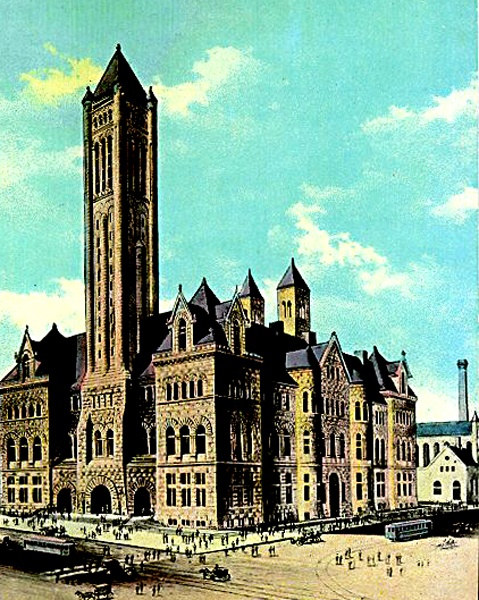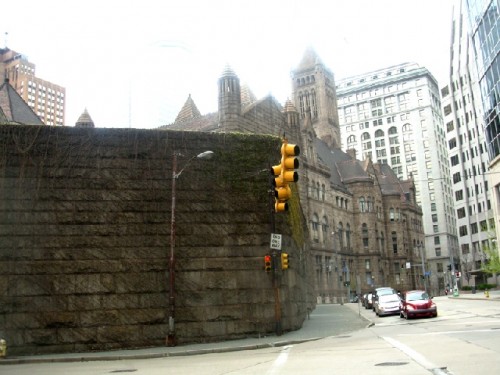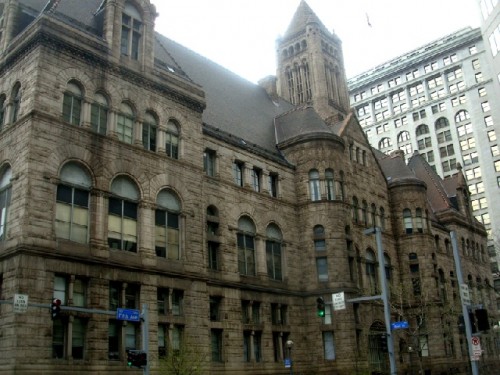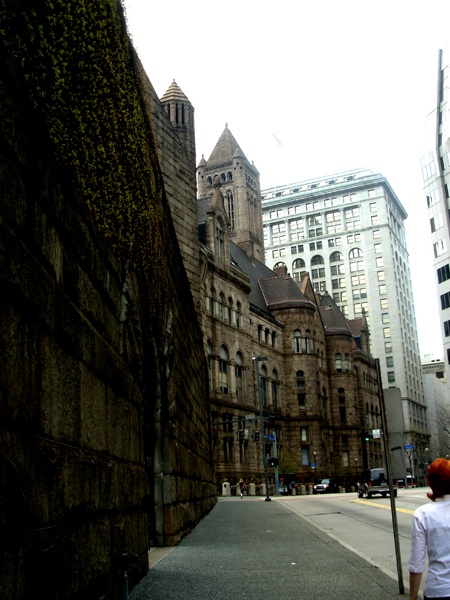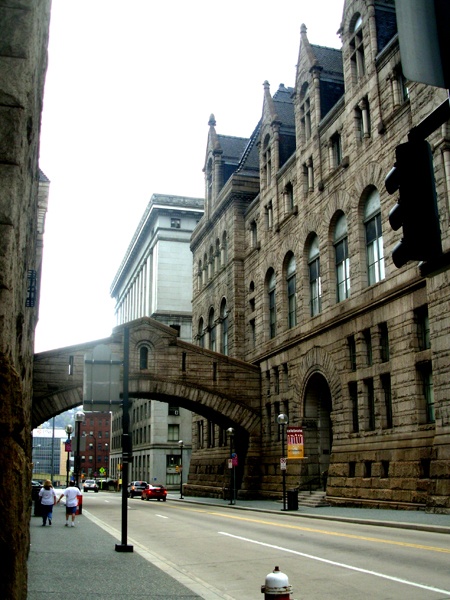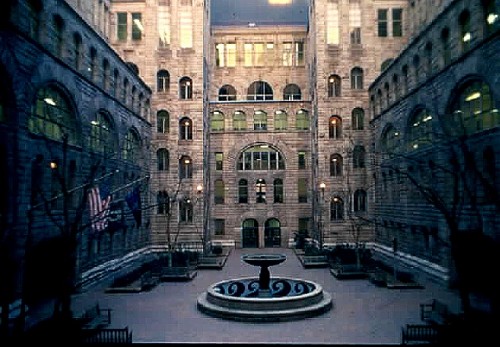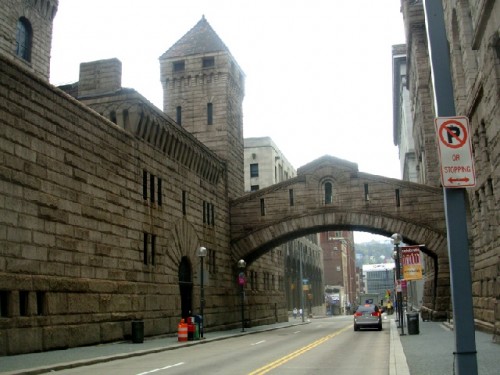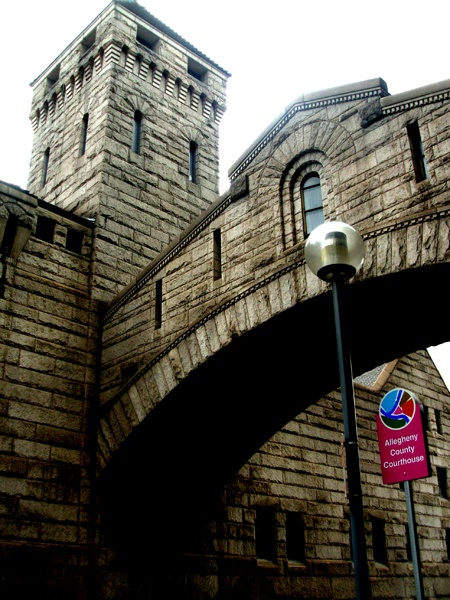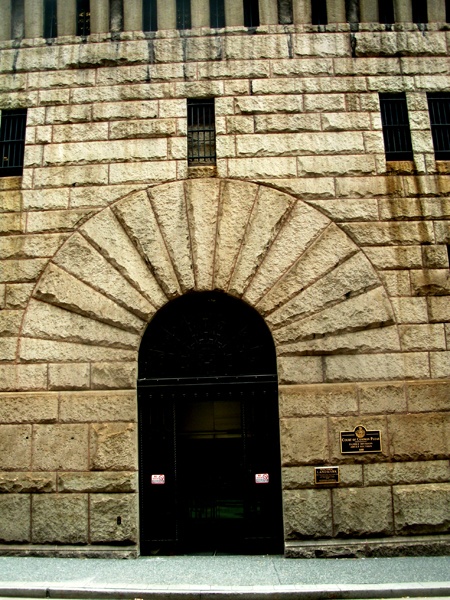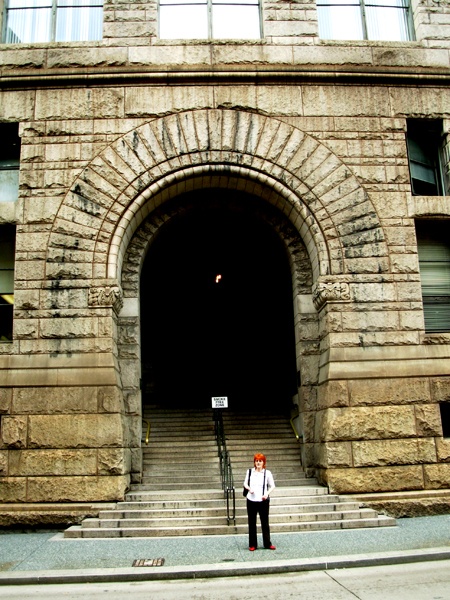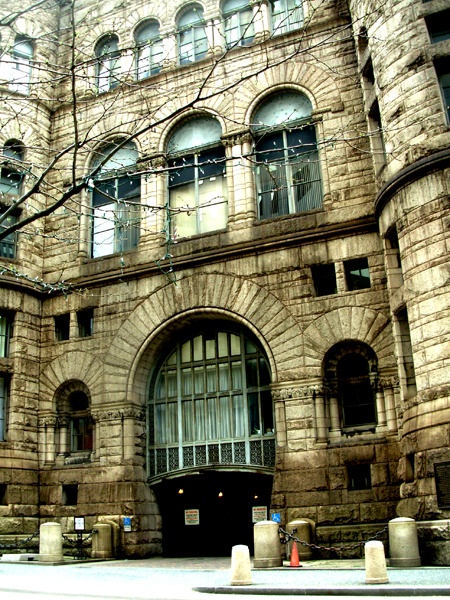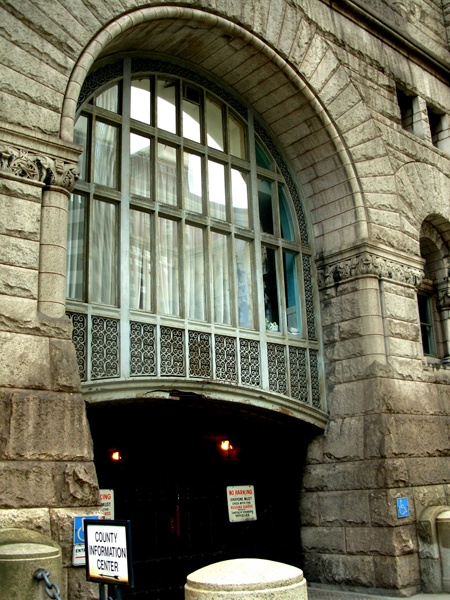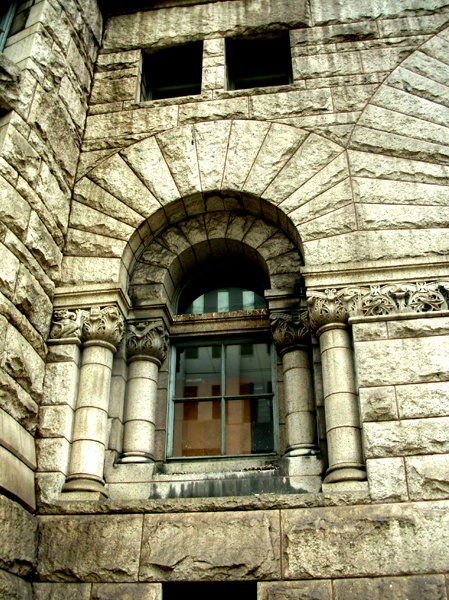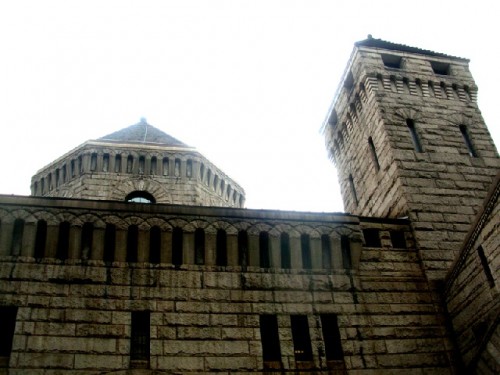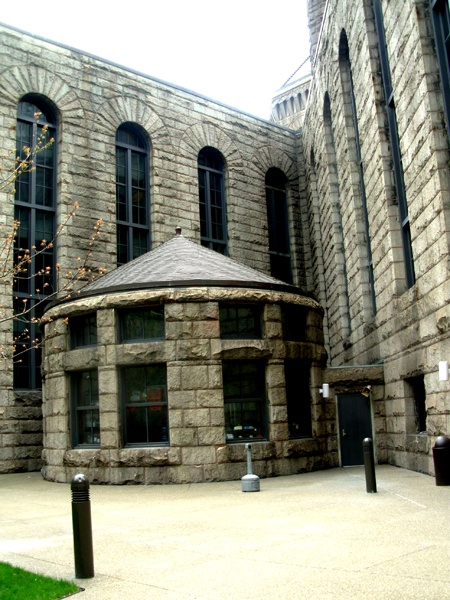Pittsburgh, Pennsylvania: H.H. Richardson's Allegheny Courthouse and Jail
An Architectural Masterpiece
By: Charles Giuliano - Apr 22, 2008
When the original courthouse was destroyed by fire, Henry Hobson Richardson (1838-1886), then at the height of his career and the most famous and influential architect of his generation, was selected to design his most ambitious complex, the Allegheny Court House and Jail.Richardson died while the structure which comprises an entire city block in downtown Pittsburgh was under construction. It was completed by Shepley, Rutan and Coolidge the heirs to his firm. Two years later, across the street, the jail was constructed on a smaller plot. The two are connected by a Bridge of Sighs which references a famous overpass from court to jail in Venice. The entire project was completed for what was then an emormous sum of $2.4 million.
Bostonians will recognize many of the features of the Richardsonian Romanesque from his landmark Trinity Church in Copley Square. There is the same treatment of rough stone masonry here in graniite compared to the more familiar brownstone in Boston. The style for that use of stone led the critic Lewis Mumford to dub the Post Civil War era as the Brown Decades. We also encouter in Pittsburgh the familar enormous Romanesque arches. And the signature tower that rises another story above the four story building.
Despite changes of use and taste it is to the credit of Pittsburgh that this landmark has survived. A modern courthouse has been erected nearby but Richardson's final triumph remains for future generations.

